When you decide to take writing seriously, you're making a lifestyle choice as much as you are making a career choice. As a writer, you may have to change up your living conditions. If you haven't made any sells yet, that might mean stretching your $20 or leaving your work only to come home and work some more. It might mean staying up late to get a chapter in or waking up early to fit in an hour of editing before your day job. Frankly, you'll probably have to cut back on time with friends and family and hobbies, because to be a great writer, you have to not only write, but read, and study, and it helps to network and have an online presence as well.
I've been living a writing lifestyle for over a year and a half now. This post will cober some things I've learned that have helped me be most productive. It seemed fitting for National Novel Writing Month.
Embracing the Writing Life
Finding (Making) Time
The most important thing about being a writer is to write! This is your priority. This means you need to put in the time and effort. Talking or daydreaming about it, or staring at the keyboard isn't enough. If you're a parent or work at another job, like I mentioned above, this might mean fitting time in at night or in the early morning, or during nap time.
If you have a more flexible schedule, try finding out what time of the day you write best, and schedule your life around it. I've heard that most writers work best right before or after sleeping, because that's usually when the creative side of the brain is active. It's true for me. So I wake up extra early and get in some writing before I go to work. If I have trouble getting back into my story in the afternoon, I take a power nap, and magically, writing becomes easier. I was a little skeptical of this idea before, but now I know how it really can play a role in my productivity.
You've made the time, now, make the most out of your time.
This doesn't mean writing as fast as you can. What's the point of writing at all if you're going to write crap? I mean do everything to get in your writing zone and stay there. This might mean finding your own quiet space where you can work without being bothered. For me, it's more than that. It means watching what I do when I'm not writing, because that influences my productivity. Hunger, fatigue, brain fogs can all effect my fiction session. So I watch what I eat.
Nothing can slow you down like poor health (physical, mental, or spiritual).
Back in college, I started having severe pain in my hands. Luckily the doctors didn't find anything serious, but now I take primrose and fish oils to help prevent the aches, so I can be more productive.
If you want to write for many years to come, don't skimp out on your health and work space.
You can also make the most of your time by working out story problems while in the shower, eating lunch, or brushing your teeth, so that when your writing session starts, you're ready.
And of course, make the most out of your session by actually putting in the effort. Treat it like a job. Do whatever you need to stay focused.
If you work too hard, too long, you'll crash. Breaks aren't overrated. But you'll get the most out of your time if you prioritize.
But be careful of when you post that blog post. We live in a world of immediate gratification. If you post that blog post, not only will you need to get it out to all of your "outposts" like twitter and facebook, but you might have a strong desire to check on it regularly to see the stats, if anyone commented on it, or shared it. Then you might get the grand idea of revamping your blog. Or reading other blogs. And before you know it, your focus has turned from writing that novel to the social media warp. That's why I hardly ever post my entries the same day I've written them. (This also ensures that I'm ahead of my blog.)
To cut down on eye strain, I've also started listening to audio books more--which is great because I can listen to them while I cook and clean. You can also listen to podcasts on writing. Writing Excuses is one that has four professional writers who do nothing but give writing advice and tips, all for free.
If you need a break from the whole writing/book world, watching quality t.v. or movies (there is such a thing, especially if you're a writer) is a great way to unwind and still learn, leisurely. Educational programs can plant seeds for brainstorming. Fictional ones can refine your eye for storytelling. When you spot a character or plot that you like (or don't like) take a second to wonder why and how it has that impact on you.
Tell you what, I've learned a lot about writing from my favorite t.v. shows and movies.
You don't have to be as extreme as me, but it's amazing how much more you can accomplish with your writing endeavors when you do these things.
Now, sometimes you still need a break from all this. There's a point where your brain is so full of information, it needs to zone out. And let's not forget to be part of the real world that lives outside our fictional one. Spending time with positive friends and family members can help revitalize you. Just living life can enrich your writing.
Getting the Most out of Your Writing Session
You've made the time, now, make the most out of your time.
This doesn't mean writing as fast as you can. What's the point of writing at all if you're going to write crap? I mean do everything to get in your writing zone and stay there. This might mean finding your own quiet space where you can work without being bothered. For me, it's more than that. It means watching what I do when I'm not writing, because that influences my productivity. Hunger, fatigue, brain fogs can all effect my fiction session. So I watch what I eat.
Nothing can slow you down like poor health (physical, mental, or spiritual).
Your Work Space
It's worth investing in items that will make your writing session more comfortable. When I first started this journey, I didn't care much about my work space. Months into it, I found out what a difference a good chair, the right table height, and posture can make--it helped me write longer. I have an ergonomic keyboard and a trackball (that I can use with either hand) instead of a mouse so I can type more. I keep my laptop screen's brightness at the lowest level to reduce the strain on my eyes. I also take eye vitamins now (and yes, they work.) I found I was more comfortable with a foot rest.Back in college, I started having severe pain in my hands. Luckily the doctors didn't find anything serious, but now I take primrose and fish oils to help prevent the aches, so I can be more productive.
If you want to write for many years to come, don't skimp out on your health and work space.
You can also make the most of your time by working out story problems while in the shower, eating lunch, or brushing your teeth, so that when your writing session starts, you're ready.
And of course, make the most out of your session by actually putting in the effort. Treat it like a job. Do whatever you need to stay focused.
Prioritize
If you work too hard, too long, you'll crash. Breaks aren't overrated. But you'll get the most out of your time if you prioritize.
Blogging
For me, writing my novel comes first. When my brain needs a break from that, I switch to writing blog posts about writing. There is something renergizing about writing a piece that's short and casual--and still productive. If you do a post about the writing process, offering insights and tips about it, you can study the craft and blog at the same time.But be careful of when you post that blog post. We live in a world of immediate gratification. If you post that blog post, not only will you need to get it out to all of your "outposts" like twitter and facebook, but you might have a strong desire to check on it regularly to see the stats, if anyone commented on it, or shared it. Then you might get the grand idea of revamping your blog. Or reading other blogs. And before you know it, your focus has turned from writing that novel to the social media warp. That's why I hardly ever post my entries the same day I've written them. (This also ensures that I'm ahead of my blog.)
Reading and Other Forms of Stories
Okay, when my brain is too tired to blog, I grab a book and start reading. It's either a book about writing or a novel--so I'm still studying even then. And when I'm done with the book, I have the option of blogging a book review (see, more blog posts).To cut down on eye strain, I've also started listening to audio books more--which is great because I can listen to them while I cook and clean. You can also listen to podcasts on writing. Writing Excuses is one that has four professional writers who do nothing but give writing advice and tips, all for free.
If you need a break from the whole writing/book world, watching quality t.v. or movies (there is such a thing, especially if you're a writer) is a great way to unwind and still learn, leisurely. Educational programs can plant seeds for brainstorming. Fictional ones can refine your eye for storytelling. When you spot a character or plot that you like (or don't like) take a second to wonder why and how it has that impact on you.
Tell you what, I've learned a lot about writing from my favorite t.v. shows and movies.
Social Media
There is a reason I put this option last on the priority list. It can suck your time, which would be better spent on activities that will actually help you write better. Social media is a great tool for writers, especially independent writers, when you control it and don't let it control you. Take a few minutes here and there (it doesn't need to be hours) and work on your online presence. Get on Facebook or Twitter when you need a little break from your novel. I could do a whole post on social media, but that's for another day.
In Closing
You don't have to be as extreme as me, but it's amazing how much more you can accomplish with your writing endeavors when you do these things.
Now, sometimes you still need a break from all this. There's a point where your brain is so full of information, it needs to zone out. And let's not forget to be part of the real world that lives outside our fictional one. Spending time with positive friends and family members can help revitalize you. Just living life can enrich your writing.








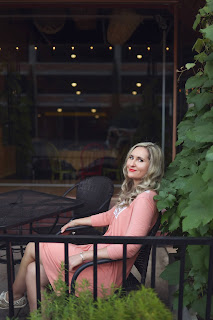
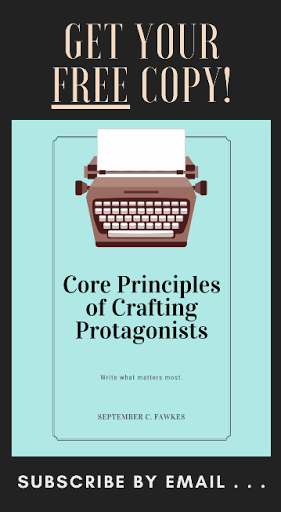
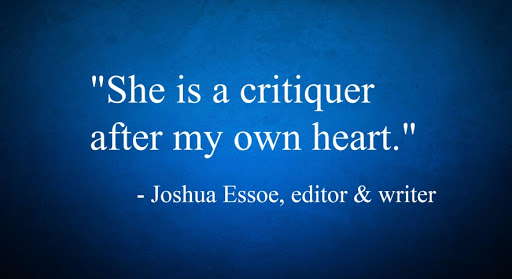

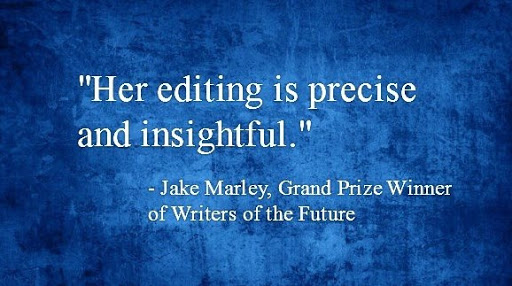

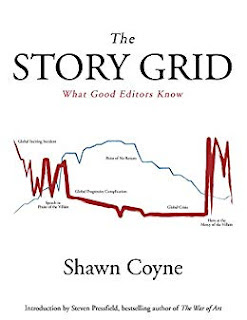




Yup. Amen. Whatever lifestyle you arrange for yourself, it's very different than the one you'd have if you didn't dedicate yourself to writing! I've also found that changing things up occasionally helps. I can find out if I'm doing things merely by habit, or if it really is the best way for me to arrange my time and space for writing and for living!
ReplyDelete